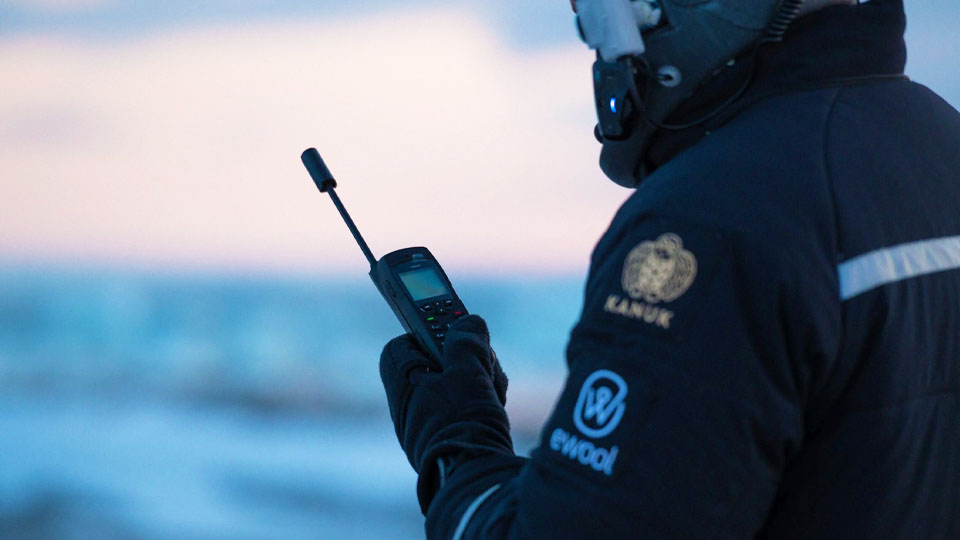
Remote places test every system you carry. Weather turns fast, maps fall short, and local networks vanish. When you move beyond roads, communication is no longer a convenience; it is survival. Explorers need a channel that works on the ice, in the desert, out at sea, and under tree cover. Batteries must last, messages must get through, and calls must connect on the first try. Here are five reasons why explorers choose Iridium for off-grid communication.

1. Global coverage you can trust
Coverage is the first filter. Iridium’s polar-orbiting constellation reaches everywhere from high latitudes to mid-ocean and desert corridors with no road service. This reach lowers planning friction and keeps routes flexible when weather closes Plan A.
It also cuts risk, since you can call, text, or send coordinates from anywhere you stand. If you want a single, dependable handset for world travel, add Iridium phones to your shortlist and build the rest of your comms plan around them.
2. Rugged hardware that survives bad days
Exploration is hard on gear. Phones hit rock, salt spray, and grit, but good Iridium handsets use sealed housings, tactile buttons, and clear screens in bright light. They tolerate cold mornings and hot dashboards. Antennas fold and lock, and ports protect against dust.
The point is simple: you want a phone that still works after you drop it at a river crossing. Be sure to pack a small dry bag, spare antenna, and a short cable. Tough gear plus simple habits keep your lifeline ready.
3. A battery strategy that fits long ranges
Power is your second lifeline in the wilderness. Make sure to plan for multi-day charges. Carry two batteries if your model supports it, and add a compact panel, a 10,000 to 20,000 mAh bank, and light cables. Use flight or airplane settings when appropriate to reduce idle draw, and send short texts when voice is not required to avoid draining the battery.
You should also schedule check-ins at known times so the phone is awake for minutes, not hours. Label ports and keep a single charging standard across your kit. Small choices extend range and calm.
4. Practical workflows that protect people
Iridium makes safety actions fast and clear. One button SOS routes to a 24/7 center that contacts local responders. Preloaded contacts, message templates, and timed check-ins reduce taps when hands are cold.
Additionally, GPS breadcrumbs show movement and alert fire if a device stops. In addition, two-way texting keeps families in the loop, which lowers stress and improves judgment. Fewer steps mean fewer errors and safer results.
5. Interoperability with modern expedition tools
Explorers rely heavily on maps and trackers. Iridium terminals pair with laptops, tablets, and mobile apps to pass data to GIS tools, weather services, and fleet dashboards. Pilots can request aviation weather, sailors can download GRIB files, and scientists can push sensor data at set intervals.
Many devices use common formats like NMEA and simple serial protocols, so cables and apps stay boring on purpose. When a weather window opens, teams move with confidence because the intel is current, not yesterday's forecast.
6. Cost management and service plans for extended expeditions
Long-term expeditions require careful budgeting of satellite communication costs. Iridium plans vary widely, from pay-per-use options for occasional travelers to monthly unlimited packages for research teams and commercial operations. Understanding these structures prevents bill shock and keeps communication flowing when budgets are tight.
Consider prepaid minutes for short trips, where you control spending upfront. For extended research or multi-month expeditions, monthly plans often provide better value and predictable costs. Many plans include free incoming calls, which helps when base camps need to reach field teams without burning the expedition's communication budget.
Data transmission costs matter too, especially for teams sharing GPS tracks, weather data, or scientific measurements. Compress files before sending, use text instead of email when possible, and schedule data uploads during specific windows to avoid peak-rate charges. Some operators offer bulk data packages that reduce per-megabyte costs for heavy users.
The key is matching your communication needs to the right service tier before you leave. Test your plan with simulated usage patterns, and always carry backup credits or a secondary payment method. Smart planning keeps your team connected without breaking the expedition's budget.
Endnote
Explorers value control, not luck. Iridium’s global reach, rugged handsets, practical power habits, and simple workflows give you that control when terrain and weather do not cooperate. Pick a phone, set a charging plan, and practice short, clear messages.
 Xiaomi Redmi 6A
Xiaomi Redmi 6A  Sony Xperia 5 II
Sony Xperia 5 II  LG Q6 Alpha
LG Q6 Alpha  Motorola Moto G84
Motorola Moto G84  Motorola Moto Z2 Force
Motorola Moto Z2 Force  Apple iPhone 14 Plus
Apple iPhone 14 Plus 

